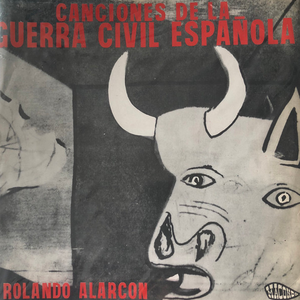El gallo rojo
Rolando Alarcon Lyrics
Jump to: Overall Meaning ↴ Line by Line Meaning ↴
Es que ya se acaba el día.
Si cantara el gallo rojo,
Otro gallo cantaría
¡Ay! Si es que yo miento,
Que el cantar de mi canto
Lo borre el viento
¡Ay! Que desencanto,
Si me borrara el viento
Lo que yo canto.
Se encontraron en la arena
Los dos gallos frente a frente.
El gallo negro era grande,
Pero el rojo era valiente.
¡Ay! Si es que yo miento,
Que el cantar de mi canto
Lo borre el viento
Se miraron cara a cara
Y atacó el negro primero.
El gallo rojo es valiente,
Pero el negro es traicionero.
¡Ay! Si es que yo miento,
Que el cantar de mi canto
Lo borre el viento
Gallo negro, gallo negro,
Gallo negro te lo advierto:
No se rinde un gallo rojo
Más que cuando está ya muerto.
¡Ay! Si es que yo miento,
Que el cantar de mi canto
Lo borre el viento
The song "El gallo rojo" by Rolando Alarcón tells a story of two fighting roosters. The first verse explains how the black rooster crows at the end of the day, while the red rooster's crowing would signal the start of another rooster's crowing. The singer then expresses a fear that their song may be forgotten, despite its importance. The second verse sets the scene of the two roosters confronting each other in the arena, where the black rooster is physically bigger, but the red rooster is courageous. In the final verse, the black rooster attacks first, but the red rooster fights back furiously, showing that a red rooster only surrenders when dead.
The lyrics can be interpreted as a commentary on class struggle and the power dynamics of oppression. The black and red roosters can be seen as symbols of different classes, with the black rooster representing the dominant class and the red rooster representing the oppressed. The red rooster's courage and determination to fight back against a physically imposing opponent show that even those who are seen as weak can rise up and resist.
Line by Line Meaning
Cuando canta el gallo negro
Es que ya se acaba el día.
The crowing of the black rooster signifies that the day is coming to an end.
Si cantara el gallo rojo,
Otro gallo cantaría
If the red rooster were to crow, another rooster would follow suit.
¡Ay! Si es que yo miento,
Que el cantar de mi canto
Lo borre el viento
If I am lying, let the wind erase the sound of my singing.
¡Ay! Que desencanto,
Si me borrara el viento
Lo que yo canto.
It would be a great disappointment if the wind were to erase the meaning of what I am singing.
Se encontraron en la arena
Los dos gallos frente a frente.
El gallo negro era grande,
Pero el rojo era valiente.
The two roosters met in the arena, the black one was big but the red one was brave.
Se miraron cara a cara
Y atacó el negro primero.
El gallo rojo es valiente,
Pero el negro es traicionero.
They stared at each other and the black one attacked first. The red one was brave, but the black one was treacherous.
Gallo negro, gallo negro,
Gallo negro te lo advierto:
No se rinde un gallo rojo
Más que cuando está ya muerto.
Black rooster, black rooster, I warn you, a red rooster will never give up until it is dead.
Writer(s): recop. rolando alarcon
Contributed by Dominic G. Suggest a correction in the comments below.
